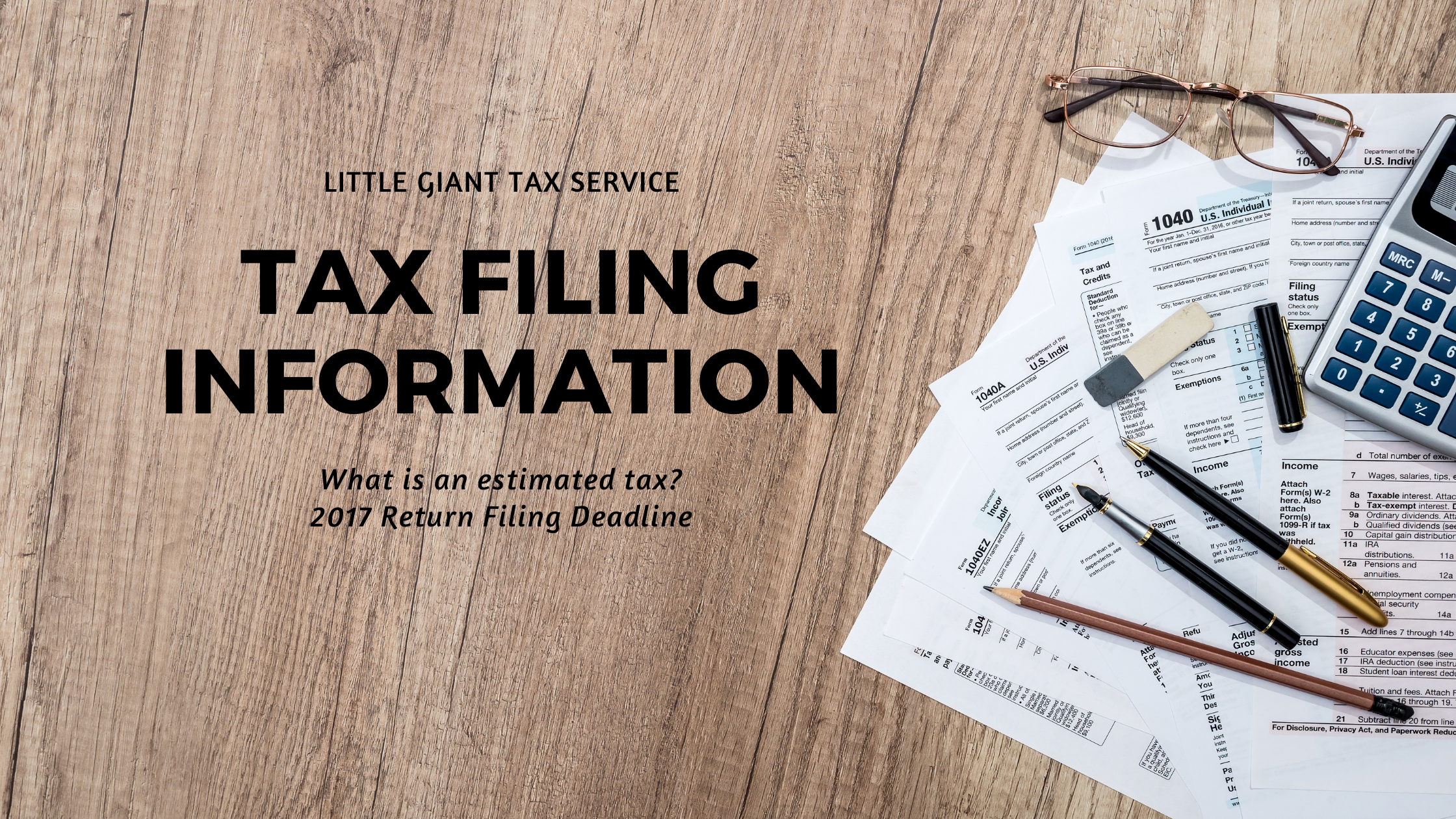
The IRS extended the tax filing deadline to May 17th, but they did not extend the estimated tax filing deadline.
What does this mean for our customers?
If your taxes are taken out of every paycheck and you receive a W-2, you do not have to make the quarterly estimated tax payments.
If you are an individual who expects to owe more than $1,000 in income taxes at your tax filing or a corporation which expects to owe more than $500 in income taxes, then you have to pay estimated taxes. For these tax filers, the IRS has not extended tax filings like they did in 2020.
For many of our customers, your tax filing deadline is May 17th, but if you fall into one of the estimated tax categories you still need to make that estimated tax payment on time.
2017 Returns Extended
US tax law gives taxpayers 3 years to file a return and receive a refund. After that, the money goes into the US Treasury and is no longer available to individuals.
We had posted on Facebook that this due date was still on April 15th. According to the IRS’s announcement, the tax extension is for the 2017 taxes as well. Also according to that announcement, there are over 16,000 taxpayers in South Carolina who have not yet filed their 2017 returns and are owed a total of over 15 million dollars.
If you need to file your 2017 tax return, please come see us! We can help you navigate the complexities of old documents and you might actually come out with more money than you owe.
Interest Rates Remain The Same
The IRS has made the decision to keep the same interest rate for the fourth quarter of 2020. Each quarter, the IRS sets the interest rates charged or paid on over- and underpayment. For taxpayers (other than corporations), the overpayment and underpayment rate is the federal short-term rate plus 3 percentage points. Other rates are as follows:
- 3% for overpayments (2% in the case of a corporation)
- 5% for the portion of a corporate overpayment exceeding $10,000
- 3% percent for underpayments
- 5% percent for large corporate underpayments
Final BEAT Regulations Issued
The Tax Cuts and Jobs Act (TCJA) added a new tax on large U.S. corporations that make deductible payments to related foreign parties, called the base erosion and anti-abuse tax (BEAT). The IRS has issued final regulations providing detailed guidance regarding how to compute certain BEAT calculations. They also contain rules permitting taxpayers to waive deductions for purposes of the BEAT, and additional guidance regarding partnerships and anti-abuse rules.
Temporary Digital Signatures Allowed
The IRS has released a list of tax forms on which they are allowing digital signatures. This is a temporary measure, in place until December 31, 2020, intended to help protect the health of taxpayers and tax professionals. These forms have to be printed and mailed, but the digital signatures will enable the forms to be filled and filed without contact between taxpayer and tax preparer, and in a timely manner. The IRS will continue to monitor this temporary option and determine if further measures are necessary.
Third Quarter Tax Payments Due September 15
The IRS reminds taxpayers that third quarter tax payments are due September 15. This applies to anyone not subject to payroll tax withholding like self-employed or gig workers, investors, recipients of alimony, retirees, and others. Taxes are “pay as you go,” and there are penalties for late payment or underpayment of taxes. Due dates for disaster victims have been delayed.